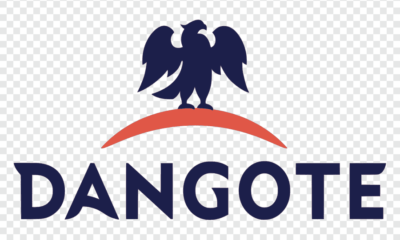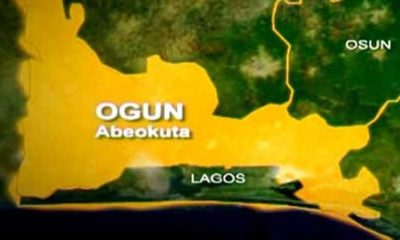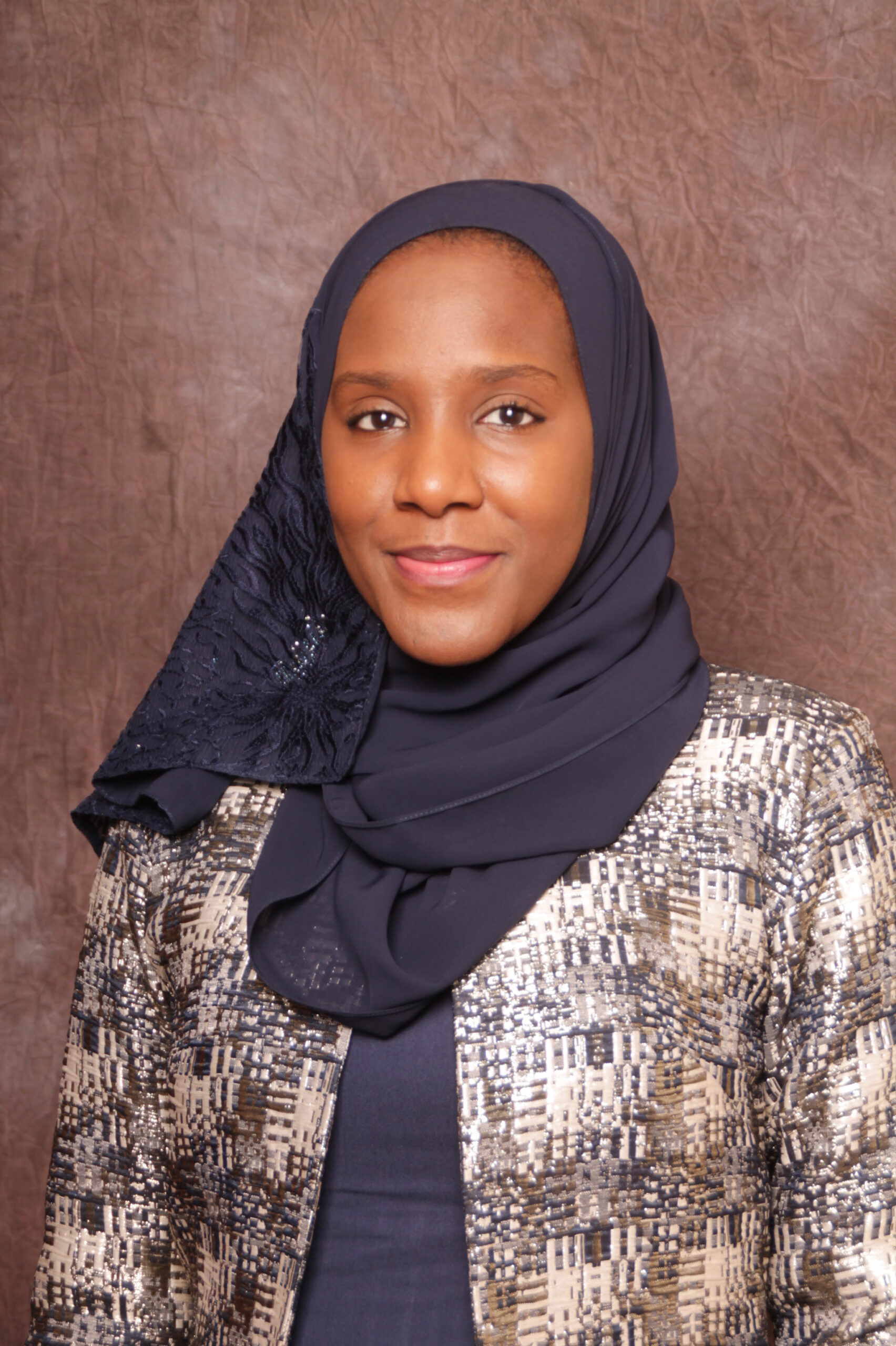Business
Dangote Refinery To Employ 100,000, Generate $21bn
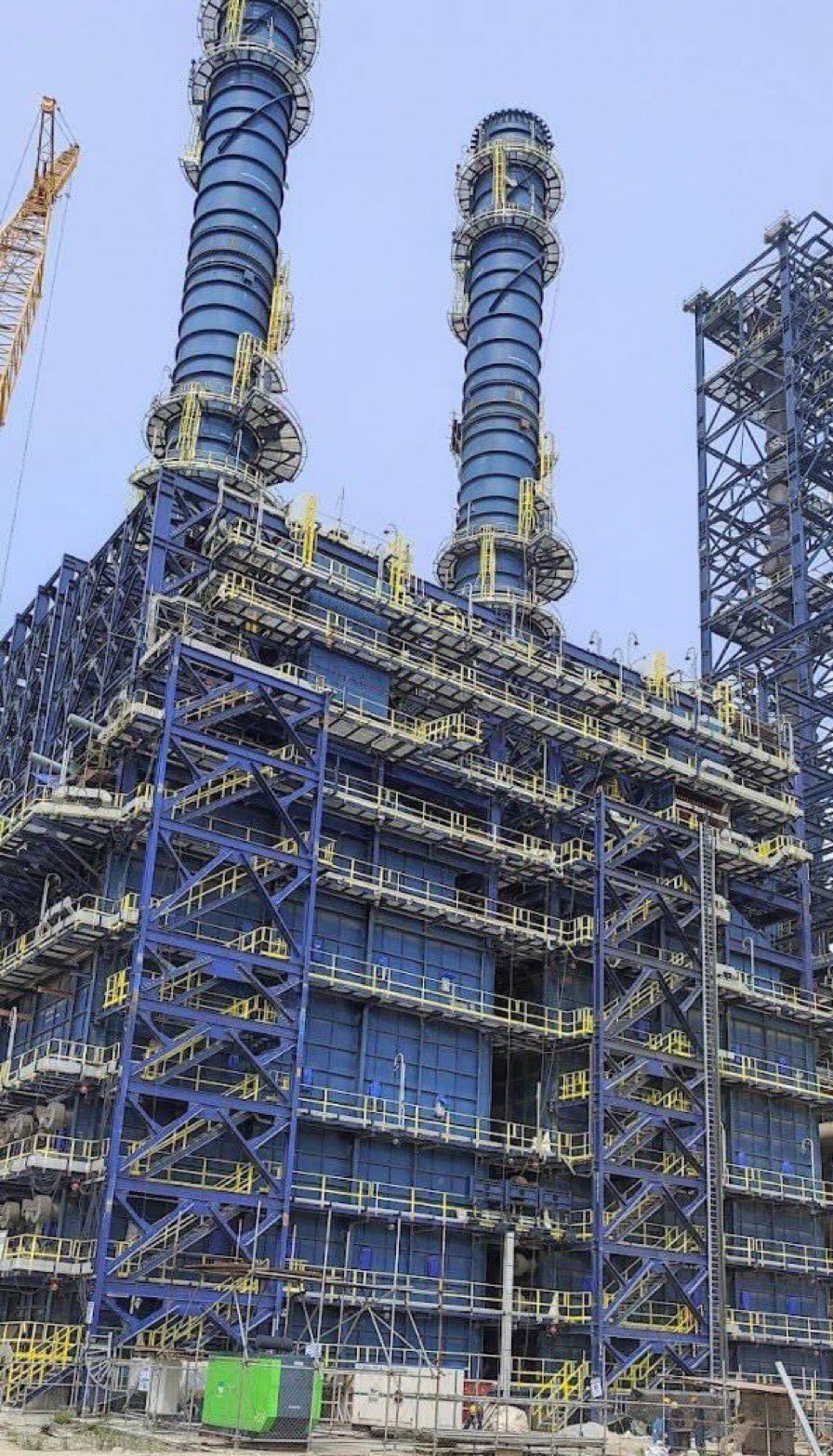
Amid encomium from eminent personalities, which included President Mohammadu Buhari and five other African heads of state, President of the pan-African Conglomerate, Dangote Industries Limited (DIL), Aliko Dangote disclosed on Monday that the newly commissioned 650,000pbd refinery would employ over 100,000 Nigerians as well as generate over $21 billion, thereby saving the country huge forex, that would have gone for fuel importation.
The company, according to him, now has over 33,000 employees.
Much to the excitement of Nigerians, Dangote said the commissioning has marked the beginning of the new journey of the self-sufficiency in refined petroleum products and exportation of same just as been achieved in Cement and lately fertilizer.
Dangote lamented that the current fuel crisis has had negative impact on the nation’s economy and that informed his decision to build a world class refinery that would change the trend and that though faced challenges but decided to trudge on.
He highlighted events leading to his firm deciding to build its own refinery after his attempt to acquire one of the existing moribund did not materialize noting that he decided to change marketing strategy and settle for gigantic project ever undertaken by an individual world over.
According to him, the refinery plant would be run at the highest effective and efficient level for maximum benefits to all Nigerians noting “we will replicate what we achieved in cement and fertilizer by attaining self-sufficiency and becoming net exporter.
Dangote assured Nigerians that 40 percent of the production capacity will be available for export with the coming on stream of the plant guaranteeing raw materials for plastic, and pharmaceutical industries.
In his remark, President Buhari congratulated Dangote Group, saying “the 650,000 barrels a day of crude which will enable our country to achieve self-sufficiency in refined products and even have some supplies for export saying the government and people of Nigeria are proud of the doggedness and tenacity of Dangote as entrepreneur.
Said he, “This feat at this time of the nation’s economic development clearly made this event a notable milestone for our economy and the game changer for the downstream petroleum products not only for Nigeria but the entire African continent. Dangote Group has helped transform our economy from heavy import dependence to a net exporter in some critical industries, including cement and Fertiliser.”
He noted that the economy which has been stressed for many decades by huge deficits in economic infrastructure and over a decade of insurgency has also been severely impacted by several external crises, including the global financial crisis, the collapse of world crisis the Coronavirus pandemic and the Russia Ukraine war.
“The consequences of these challenges constitute a severe strain on our economy and limiting government’s ability to provide basic infrastructure without resorting to borrowing. Government therefore decide to focus attention on creating an enabling environment for the private sector to thrive and fill the enormous gap in investments not only in infrastructure, but also in all critical sectors.
“We recognize that without active participation of the private sector and a strong commitment to public-private partnership, the economy will not be able to continue to meet the challenge and economic growth”, while expressing the hope that the coming administration will continue to apply such innovative schemes to accelerate the fruition of critical infrastructure, in particular roads and gas pipelines.
Governor of Central Bank of Nigeria (CBN), Godwin Emefiele while commending Dangote for the successful completion of the refinery project said it would not only aid that nation’s domestic petrol needs, but also help in generating export revenues for our country.
Emefiele recalled; “In September 2013, when Alhaji Aliko Dangote announced his plans for the refinery, it was estimated to cost about US$9 billion, of which US$3 billion was projected as equity investment by the Dangote Group and the balance financed through commercial loans. Due to an array of factors, the project was eventually completed with a total of US$18.5 billion with funding distributed into 50 percent equity investment and 50 percent debt finance.
“I am proud to state that the commercial loan component of the project was financed majorly by our domestic banks with the balance sourced from foreign banks. The Central Bank of Nigeria also partnered, as always, with the Dangote Group in ensuring the successful completion of the project by providing about N125 billion, to cover domestic currency requirements for the venture.
“What you may not be fully aware of, Your Excellencies, is that the Dangote Group has started repaying some of the commercial loans even before the commissioning of this facility. This reflects the commercial capability of the Group and its Chairman. I am pleased to inform everyone today that, following extensive repayments, outstanding debt has dropped appreciably from over US$9 billion to US$3 billion.”
The CBN Governor commended Nigerian banks saying they did not only partnered with the project through effective financing but were keenly aware of the importance of the project for our nation. “They provided immense support and exceptional understanding, even when interest payments and principal repayment had fallen due.”
He described the successful completion of the refinery to President Buhari’s astute vision to ensure that Nigeria produces what Nigerians consume and that we consume what we produce. “The refinery and petrochemical project by the Dangote Group is a testament to your vision for Nigeria. It shows that, regardless of what the world thinks, Nigeria can be self-sufficient in all products that we consume and at the same time export our excess output to the rest of the world.
“Aside enumerating our strategic efforts in the agriculture and other critical sectors, a sterling projects that we highlighted was the gigantic Dangote Refinery and Petrochemical project. The world doubted our willpower to succeed with this project. In hindsight, I could appreciate their skepticism because they do not understand how a single individual could build a refinery capable of serving an entire nation. To them, projects of this magnitude are usually only undertaken by sovereigns not individuals.”
Group Managing Director of the Nigerian National Petroleum Company Ltd (NNPC), Mele Kolo Kyari said the NNPC was happy to partner Dangote Refinery because the project has potentials for smooth supply of petroleum and it would guarantee healthy competition for the benefits of the nation’s economy.
He said the NNPC Ltd. was committed to value addition to the potentials of the project noting that the new Petroleum Industry Act will provide security of supply of refined products and protect the plant. The NNPC boss added that his was happy the refinery is coming on board at a time the subsidy on imported products has become unbearable for government.
In their respective goodwill messages, Presidents of Ghana, Senegal, Niger, Benin Republic and Chad expressed satisfaction that the Dangote Refinery will serve the West African region and that their countries would be beneficiaries saying the Dangote Refiner is an African company for Africa by an African entrepreneur.
Business
Marketers In Anguish, As Dangote, NNPC Ltd War Drag Price To N880/litre
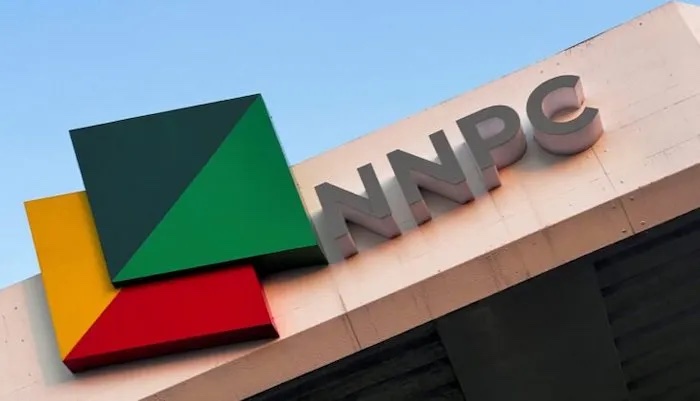
The pull of market forces which moved the hands of the Nigerian National Petroleum Company Limited (NNPC Ltd) to reduce the price of Premium Motor Spirit (petrol) to N880 per litre in Lagos and N935 in Abuja appears to be a source of torture to independent markets.
Biztellers reports that the latest price review on Easter Monday saw NNPC retail outlets in Lagos drop from N925 to N880, while those in Abuja adjusted from N950 to N935.
The NNPC Ltd’s price reduction came barely a week after the Dangote Refinery lowered its ex-depot price from N865 to N835 per litre.
ALSO READ: BREAKING: Again, Dangote Cuts Petrol Price To N835 per Litre
In addition, the $20bn refinery also directed its partners like MRS, Heyden, and Ardova to sell a litre of petrol at the rate of N890 instead of N920 in Lagos, N900 in the South West, N910 in the South-South, and N920 in the North East.
Consumers can smile because with the reaction, the NNPC Ltd’s new price in Lagos is N10 lower than what the Dangote Refinery is selling at, which might lead to another reaction, as the price war between the two companies.
Though some NNPC Ltd’s retail outlets were observed selling at the old rate in Lagos, it was gathered that they were given the liberty to exhaust old stock before adjusting to the new prices.
Market sources are of the view that the current price war was ignited by the Federal Government’s implementation of the Naira-for-crude policy.
Business
Gold Prices Hit Historic $3,500 Amid Trump Tariffs, Fed Tensions
Gold soared to a record high of $3,500 an ounce on Tuesday, as mounting fears over a potential U.S. recession and escalating tensions between President Donald Trump and the Federal Reserve drove investors toward the traditional safe-haven asset.
The precious metal briefly touched an all-time high of $3,500.10 an ounce before retreating slightly to trade at $3,467.87.
READ ALSO: JUST IN: Vatican Discloses Cause Of Pope Francis’ Death
The rally marks the latest in a string of record-breaking gains for gold, fueled by a weakening U.S. dollar, sharp declines across global stock markets, and growing concerns over the health of the world economy.
Market sentiment took another hit this week after President Trump ramped up his trade war with China, slapping fresh tariffs on the world’s second-largest economy and intensifying fears of prolonged economic disruption.
Gold has surged more than 30 percent since the start of the year as investors seek refuge from mounting market volatility.
“The rally reflects ongoing recession fears in the U.S. economy and heightened political tensions, especially as President Donald Trump continues to attack Federal Reserve Chair Jerome Powell,” said Rania Gule, senior market analyst at trading group XS.com.
Concerns about the Fed’s independence were further stoked Monday, when Trump publicly lashed out at Powell on social media, branding him a “major loser” for not cutting interest rates — a move the president has repeatedly demanded.
The sharp criticism follows Trump’s recent suggestion that he might attempt to remove Powell from his post.
Business
World Economic Forum Founder Klaus Schwab Steps Down From Board
Klaus Schwab, the founder of the World Economic Forum (WEF), announced his resignation from the board on Monday, marking a significant moment in the organization’s history.
Schwab, who has been at the helm of the WEF for over five decades, confirmed he was stepping down from his position as Chair and leaving the Board of Trustees with immediate effect.
“I have decided to step down from the position of Chair and as a member of the Board of Trustees, with immediate effect,” Schwab said, noting that the decision comes as he approaches his 88th year.
READ MORE: NNPC Ltd Opens Retail Outlet In Bauchi
His resignation follows his stepping down as executive chairman in 2024, when former Norwegian foreign minister Borge Brende took over the day-to-day operations.
In response, WEF appointed Vice Chairman Peter Brabeck-Letmathe as interim chairman while a search committee was formed to find a permanent successor.
The WEF board lauded Schwab’s immense contributions, acknowledging his “outstanding achievements” over his 55-year leadership tenure.
“At a time when the world is undergoing rapid transformation, the need for inclusive dialogue to navigate complexity and shape the future has never been more critical,” the WEF stated.
“Building on its trusted role, the Forum will continue to bring together leaders from all sectors and regions to exchange insights and foster collaboration.”
Schwab, originally from Ravensburg, Germany, founded the precursor to the WEF, the European Management Forum, in 1971.
The first meeting drew fewer than 500 participants, but over the years, Schwab expanded the gathering into a prestigious platform that now attracts thousands of influential figures.
The Davos summit has become synonymous with global power brokers, offering opportunities for high-level networking, discussion, and collaboration on issues affecting the world.
Under Schwab’s leadership, the WEF grew to include regional meetings and established centers dedicated to pressing global topics such as cybersecurity, climate change, and financial systems.
The organization continues to uphold its mission of “improving the state of the world” by fostering dialogue and cooperation.
However, the WEF and Schwab have not been without their critics. Many argue that the forum has become a venue for corporate elites to exert influence over governments, with the term “Davos Man” often used to describe the affluent attendees.
Schwab has also faced the ire of conspiracy theorists, particularly following his promotion of the “Great Reset” following the COVID-19 pandemic.
These theorists have spread misinformation, alleging that Schwab and the WEF are part of a global elite aiming to control the world, with even Elon Musk weighing in on social media, claiming Schwab “wants to be emperor of Earth.”

